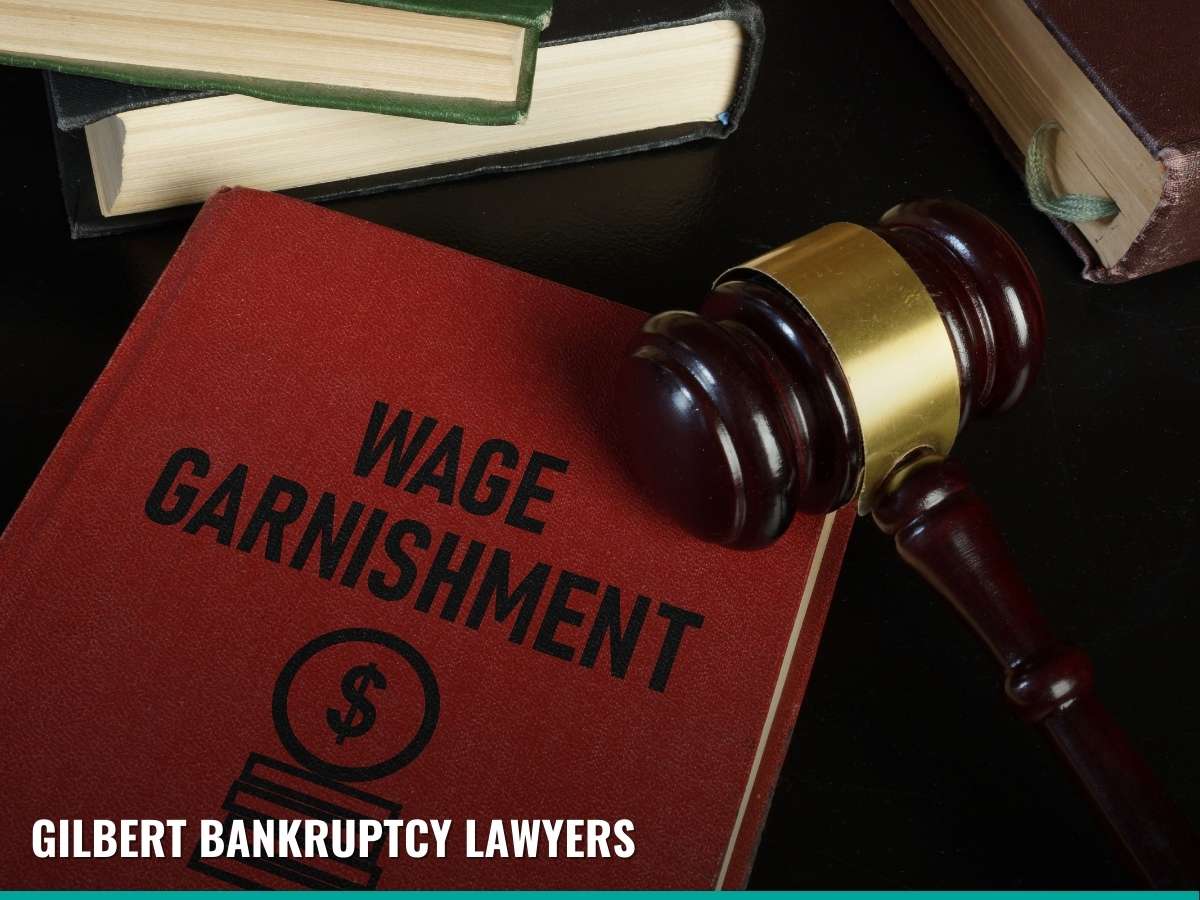Can My Wages Stop Being Garnished After I File For Bankruptcy?
If you are behind on loan payments, creditors can initiate the process of garnishing your wages in order to collect some of what you owe. This can be devastating for individuals and families who are dependent on a full paycheck to make ends meet.
It’s essential to r0ealize that if your wages are being garnished, you have options to stop it! Consult with an experienced Gilbert bankruptcy law office to learn more Arizona’s wage garnishment laws, what you can do to take charge of your situation, and how you can find financial relief.
What is Wage Garnishment in Arizona?
Wage garnishment refers to the legal proceedings in which court orders require employers to withhold some of an employee’s earnings in order to pay back one or more debts. This can include wages, commissions, bonuses, and even retirement or pension income. Wages can be garnished for many types of debts. The most common include:
If you are behind on any payments and wondering what options you have to stop wage garnishment, get in touch with a Gilbert bankruptcy attorney to discuss your situation.
What is the Process of Obtaining a Wage Garnishment Order?
Some debts, such as child support, federal taxes, and student loans, do not require court approval in order for garnishment to happen. But for other debts, there is a process that must happen before your wages can be garnished. First, the creditor who wishes to be repaid must obtain a money judgment in court. A court official must sign an order awarding money from you to your creditor. Then, your employer will receive notice of the garnishment order. They must confirm their receipt of this order within a week and withhold wages in accordance with the order.
It’s important to note that your employer is legally required to comply with wage garnishment orders. If you are facing only one garnishment, your employer cannot terminate your employment or retaliate in any way. However, if two or more judgments have been secured, you can be legally terminated.
What Are The Wage Garnishment Limits?
Arizona state law limits wage garnishment to up to 25% of non-exempt disposable earnings. This is the amount of income that is remaining after you have paid:
Up to 25% of your non-exempt disposable income can be collected until your debt is repaid. In some cases, your creditor will only garnish your wages for a set period of time and forgive the remainder of the debt. If multiple creditors want to garnish your wages, the subsequent creditors may need to wait until the first debt is repaid or canceled.
One notable exception is that more than 25% of your wages may be garnished if you are behind on child support or federal taxes.
If your wages are being garnished, it’s natural to feel helpless, but you have options. Consult with an experienced Gilbert bankruptcy lawyer.
How Can I Stop Wage Garnishment in Arizona?
The best way to stop wage garnishment is to attempt to pay your debt in good faith. If you cannot do this, be watchful for any documentation that you receive in the mail with summons or judgments. These indicate that your creditor is initiating the process of obtaining a judgment or wage garnishment. You have the best chance at stopping the garnishment if you take action immediately.
Challenge The Lawsuit
If a creditor attempts to garnish your wages in court, you can contest the action. You’ll need to provide a variety of documentation within a specific time frame with a solid reason for the challenge. This can include proof that the garnishment would cause undue hardship or that the creditor’s actions are invalid. Because these types of cases can be complicated, consulting with an experienced attorney is the best course of action. You may be able to have the wage garnishment amount reduced or even canceled altogether.
File for Bankruptcy
The most flexible option for stopping wage garnishment is to file for bankruptcy. Once you’ve filed, an automatic stay goes into effect that immediately stops all creditor action. For many people, this provides significant relief and breathing room while they determine their next steps.
Your Gilbert bankruptcy lawyer can help you understand whether you qualify for a Chapter 7 or Chapter 13 bankruptcy, which type may be the best option for you, and which will enable you to benefit the most from filing for bankruptcy. Depending on whether you file Chapter 7 or Chapter 13, your debts may be discharged completely or restructured into an affordable repayment plan that fits with your income and expenses for the next 3-5 years. Either type of bankruptcy will stop wage garnishment and help you gain a fresh financial start.
Where Can I Get Help With Wage Garnishment?
If you’ve been informed of an upcoming wage garnishment action, act quickly to protect your future. Consult with the experienced legal experts at Gilbert Bankruptcy Lawyers. Whether you’re facing wage garnishment soon or it has already started, we will review your case at no cost and with no obligation, and can provide options to help you take charge of your financial situation. We have extensive experience and a comprehensive understanding of state and federal bankruptcy laws that enable us to guide our clients toward the best possible outcome. Give us a call today!
Gilbert Bankruptcy Lawyers
Office: 480-448-9800
Email: info@myazlawyers.com
Website: https://gilbertbankruptcylawyers.com
Additional Information at:
Phoenix Bankruptcy Lawyer
Mesa Bankruptcy Lawyers
Phoenix DUI Lawyer
Chandler Bankruptcy Lawyer
Tempe Bankruptcy Lawyers
Vegas Zero Down Bankruptcy Attorney
Gilbert Bankruptcy Lawyers
Tucson Bankruptcy Lawyer
Arizona Zero Down DUI
Las Vegas Bankruptcy Lawyers
AZ Bankruptcy Lawyer

